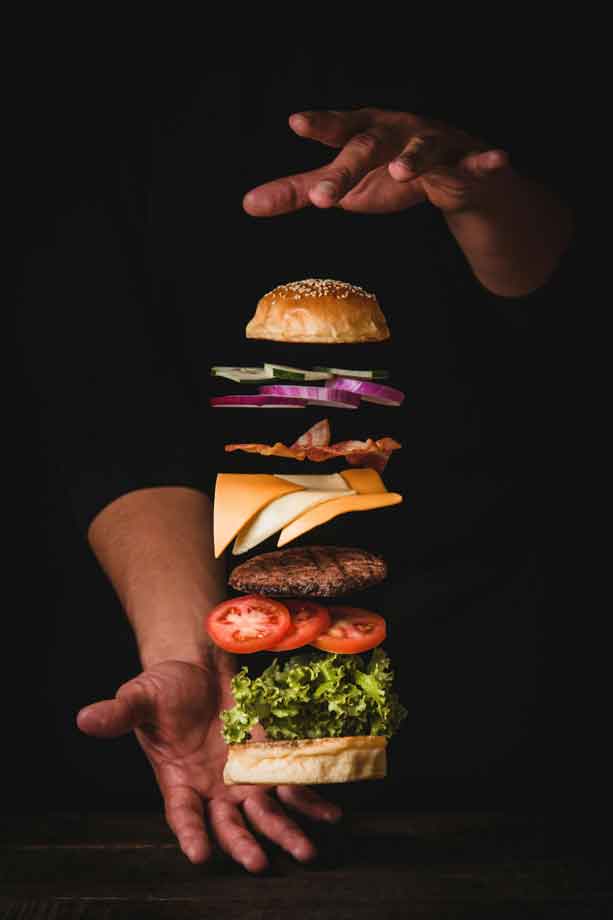
At Alef Sausage in north suburban Mundelein, owner Marina Mikhaylova makes cold cuts the old-fashioned Ukrainian way, using traditional ingredients like beef and pork. As for vegetarian options, she says, "We don"t do anything plant based. People stopped buying it."
The boom in meat alternatives has fizzled, for multiple reasons. For starters, the marketing efforts behind some prominent brands backfired by scolding the carnivores among us, who far outnumber the vegans.
At the same time, Florida Gov. Ron DeSantis and other red-meat-loving conservatives have joined with big cattle producers alarmed about the environmental advantages of lab-grown products to bash them as "fake meat," and push for new, anti-competitive laws banning them.
The long list of ingredients like pea protein and potato starch on some of the plant-based meat labels hasn"t helped, either. Health-conscious consumers are steering clear of anything ultra-processed these days.
Perhaps most importantly, the sausages that got so much attention a few years ago just didn"t taste that good.
The result has been a steep market correction. The stock price of Beyond Meat, which traded in the triple digits as recently as 2021, has cratered to a little over $6 per share. Impossible Foods, which isn"t publicly traded, recently got into a scrap with Bloomberg News over a thumbs-down story about the industry.
In Chicago last month, Archer Daniels Midland warned investors of accounting irregularities centered on its unit providing soy protein and other ingredients to plant-based meat makers. Alarmed shareholders rushed for the exits.
No question, the movement to replace meat with substitutes has run into headwinds. But stay tuned: We see better times ahead for an industry still in its infancy.
Consumers should keep an open mind as innovative new options appear in restaurants and supermarkets. Meat 2.0 is coming, and next-generation products have the potential to win over the same crowd that tried Meat 1.0 and then, understandably, went back to ordering Big Macs.
As for politicians like DeSantis looking for easy targets to rile up constituents, give it a rest. States have no business outlawing healthy products declared safe by federal watchdogs, and that includes the lab-grown meats that have barely started to reach consumers. Politicians need to let the competitive marketplace determine winners and losers.
Despite leading a state that produces more meat than Florida, Illinois Gov. J.B. Pritzker has taken a smarter approach than DeSantis. His administration actively recruited Upside Foods to north suburban Glenview, congratulating it for being the first company to sell "cultivated meat" in the U.S. — a brief foray presumably aimed more at gauging public reaction than making money. "Their pioneering leadership makes them a perfect fit for the region," Pritzker declared.
The new, 187,000-square-foot Upside Foods factory is indeed pioneering. It is expected to produce millions of pounds of ground chicken each year by growing meat directly from animal cells. The product is not vegetarian, and has similar qualities to any other ground chicken, but no birds are raised and slaughtered to produce it.
Ideally, the Food and Drug Administration and Agriculture Department would work together to advance this new industry. More likely, the incumbent meat industry will continue to fight tooth and nail against the upstarts over labeling and other issues, playing one regulator against another, which could slow growth.
Food-industry experts such as David Lockwood of Lockwood Consulting describe the development of meat alternatives as an inexorable global trend. Even as sales of conventional meat are expected to grow by double digits over the next decade, there will be demand for alternatives, Lockwood said. "The next few years are not looking great, but the market is still growing. Small organizations are creating new things."
At last month"s Fancy Food Show in Las Vegas, where Mundelein"s Alef Foods doled out sausage samples, Dominique Leach of Lexington Betty Smokehouse was handing out samples of her Chicago company"s line of Wagyu beef hot dogs. While her South Side barbecue restaurant serves meat, meat and more meat, its menu also offers a vegetarian option, she noted. "Chicago seems to be embracing the plant-based scene. You don"t want to turn people away."
As Leach was grilling her hot dogs, Prime Roots was sampling out plant-based cold cuts with a surprisingly similar texture to the savory products of Alef Foods and Lexington Betty. This 7-year-old business uses koji, an environmentally friendly ingredient akin to mushrooms, instead of the more commonplace soy or wheat gluten. Last year, it received an additional $30 million in venture funding to expand into restaurants and deli counters nationwide.
"A lot of me-too products haven"t prioritized nutrition and taste," explained Kimberlie Le, Prime Roots" co-founder. "There is a new wave of plant-based products."
The wave has hit a trough for now. But if federal regulators do their job and hostile politicians stay out of the way, this promising industry should be back on the upswing shortly.
(COMMENT, BELOW)
Chicago Tribune
(TNS)
Previously:
• 11/23/23: Critical thinking is losing out to TikTok. A Thanksgiving intervention might help
• 11/23/23: Did the maker of Oreos surreptitiously cut the creme-to-cookie ratio?
• 11/15/23: David Cameron, a former British PM, makes a surprise return as Suella Braverman gets the chop. Is there a lesson here for the US?
• 10/23/23: Turns out it's bad business to jack prices just because you can
• 09/28/23: Here's why President Joe Biden should not have joined the UAW picket line
• 07/28/23: Surprise! Some good news from the IRS
• 06/07/23: Supreme Court just fired a shot at delinquent property taxes
• 05/05/23: Can't force an unprofitable grocery store to remain open
• 03/06/23: A powerful paper comes clean about its 'China virus' coverage
• 02/08/22: Facebook flops and The New York Times buys a puzzle. What's going on?


 Contact The Editor
Contact The Editor
 Articles By This Author
Articles By This Author